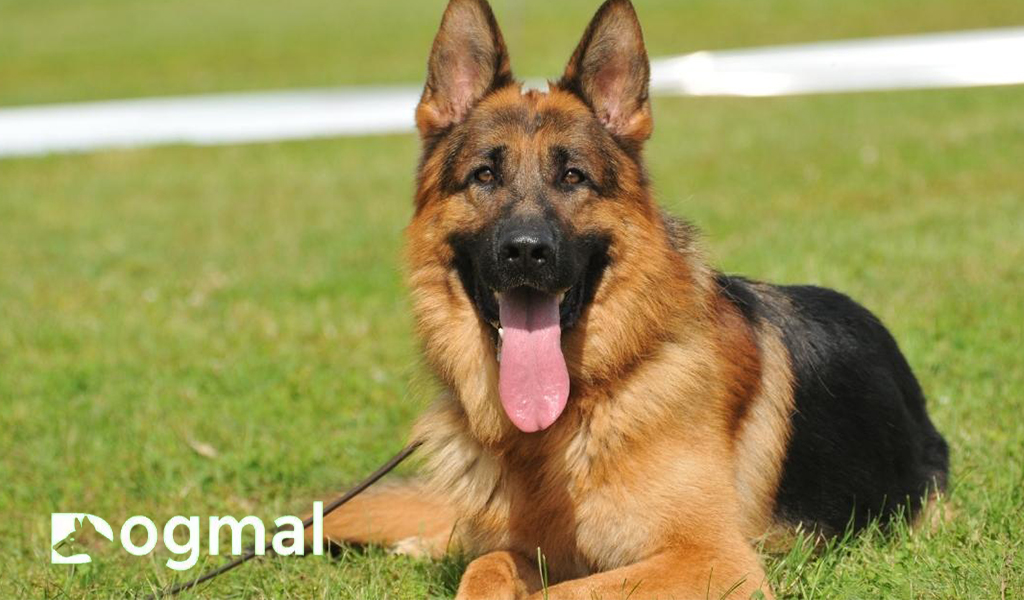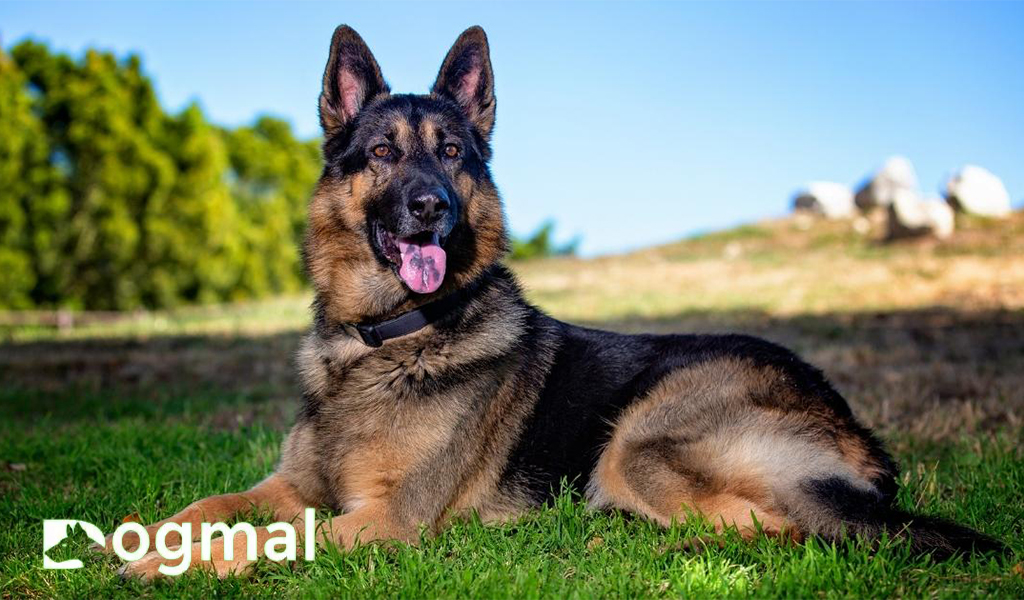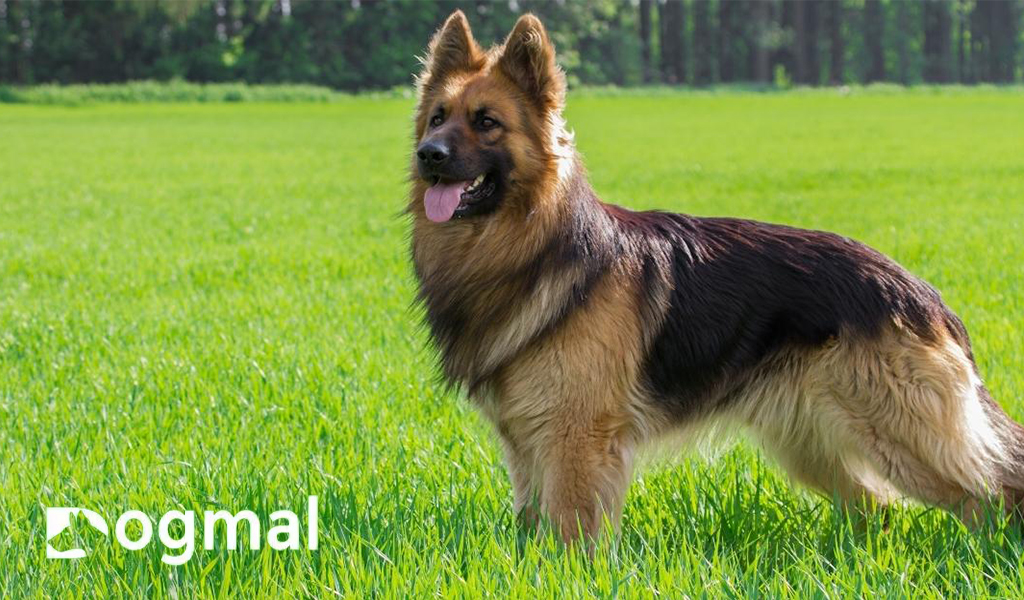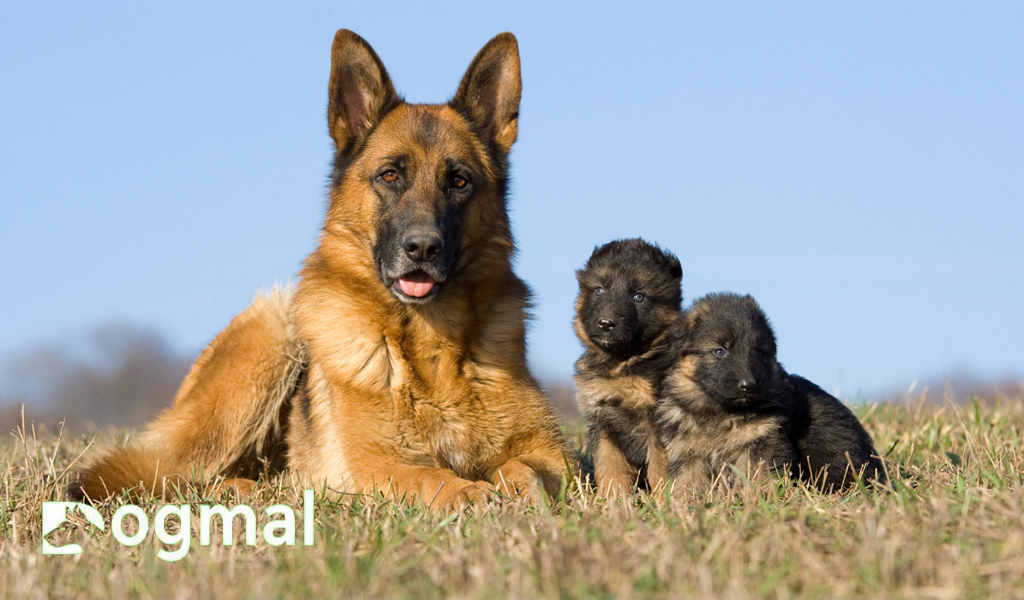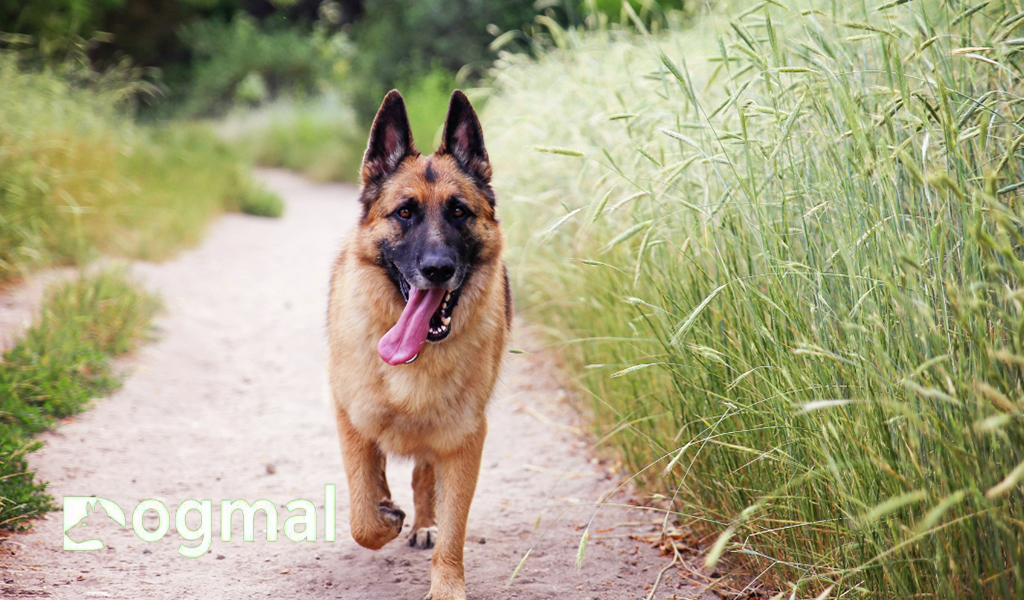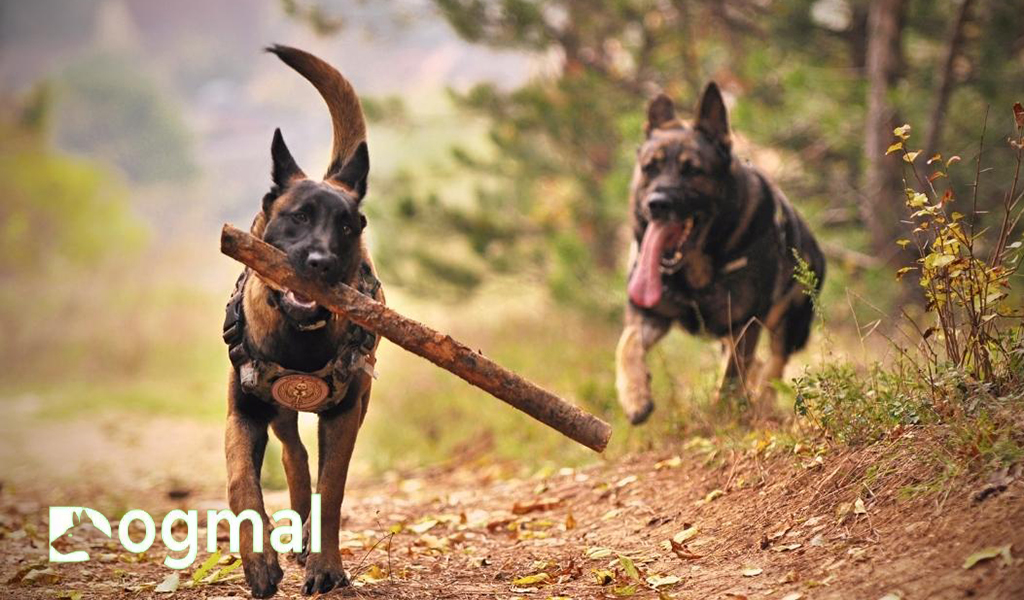The German Shepherd Dog is one of the most popular dog breeds in America. German Shepherds are powerful yet nimble, clever, and devoted dogs. The Labrador Retriever is now America’s most popular dog breed, followed by the German Shepherd. This breed is also known as Alsatian.
The German Shepherd dog, also known as the Alsatian in the United Kingdom and parts of Europe. It is one of the top ten most popular dog breeds in the United States. It is one of the best known dog breeds in the world.
German Shepherds were the search and rescue dogs that walked through the World Trade Center ruins after the terrorist attacks on September 11, 2001, looking for survivors and comforting rescue workers and families.
Content Overview
- History of German Shepherd Dog
- Breed Overview
- Appearance
- Temperament
- Health
- German Shepherd Dog Care
- Advantages and Disadvantages
- Photo gallery
History of German shepherd dog
The German Shepherd is a relatively new breed. German farmers used these dogs for driving and guarding their herds hundreds of years ago. The dog was known as the Alsatian Wolf Dog in England. German Shepherds in the US Before the War arrived, where they remained until the conflict.
The Allied soldiers did not take to it, but they did commend the canine for its bravery and humor, and many of the pups were taken home by them.
The Horand was named as the first German Shepherd Dog. German Shepherds served as Red Cross couriers, messengers, volunteers, guards, supply transporters and sentries.
German Shepherds came to the United States before the conflict. This caste remained in the country till the war. The American Kennel Club reinstated the old name of German Shepherd Dog in 1931.
German shepherd Dog overview
- Other Name: Alsatian, Alsatian wolf dog, Berger allemande, Deutscher Schaferhund
- Life Span: 10-14 years
- Origin: Germany
- Height: 25 inch
- Weight: 75-95 pounds
- Coat Length: Medium
- Color: Tan with black, saddle, sable, solid black or bi- color
- Exercise Requirement: >40minute Per Day
- Energy Level: Average
- Litter Size: 4-9
- Intelligence: High
- Puppy price: $1500-$3000
Appearance
German Shepherds are medium to large sized dogs. They have a domed forehead, strong jaws and a long square-cut muzzle with a black nose.
German Shepherd eyes are medium in size and brown in color. Their ears are large and erect, open forward and parallel. The neck of the German shepherd is long, strong and well-muscled, which is high when excited and low when walking and chasing. The angle between the neck and torso is about 45 degrees.
Claws are rounded, tightly arched and hard. Nails are strong and dark. The tail is bushy and reaches the hock. German Shepherds come in a range of colors, with the most popular being tan/black and red/black.
German Shepherds have two coats with a thick undercoat that sheds year-round. The coat is available in two lengths: medium and long.
Temperament
German Shepherds are naturally distrustful of outsiders. German Shepherds, like other dogs, need early introductions to different people, places, sounds and experiences when they are young. The German shepherd is a natural communicator. They will bark when they are bored, and they will bark if something is wrong.
These dogs are highly intelligent and perform best when assigned a task, whether as police or military dogs, tracking or search and rescue, or guide dogs. When German Shepherds are with their family, they will show their playful side by tossing their toys in the air and rolling them onto their backs.
They are not great at being alone for long periods of time. They get bored and irritable without the company they need, as well as an opportunity to use and exercise their brains.
Health of German shepherd
The average lifespan of a healthy German Shepherd dog is 10 to 14 years. German Shepherds, like many dog breeds, are prone to certain health problems. German Shepherds are more prone to hip dysplasia, elbow dysplasia, degenerative myelopathy, degenerative spinal stenosis, and von Willebrand disease than other breeds.
Hip dysplasia: Hip dysplasia is a congenital disease in which the hip joint becomes loose, causing discomfort and mobility problems, especially in the elderly.
Elbow Dysplasia: This is an inherited condition that occurs frequently in large breed dogs. It is believed to be caused by variations in the rate of growth of the three bones of the dog’s elbow, resulting in joint laxity. This can result in painful lameness. Veterinarian may offer surgery to address the condition or medication to relieve pain.
Exocrine Pancreatic Insufficiency: EPI is an inherited disease of the pancreas that destroys the cells that make digestive enzymes. As a result, the dog cannot digest the food for a long time. Early signs of the disorder include gas, loss of appetite, weight loss, and the dog becoming extremely thin and emaciated.
Allergies: Some German shepherds have allergies ranging from contact allergies to food allergies. If German shepherd is itching, licking their paws, or rubbing their face excessively, suspect an allergy and have it evaluated by veterinarian.
German Shepherd Dog Care?
German Shepherds are very active dogs that require rigorous training and frequent exercise to keep them physically and emotionally out of harm’s way. Taking good care of a German Shepherd is essential to living a happy and healthy life.
Require that he be fed nutritious meals. Energetic households and knowledgeable pet owners will adore them. When the German Shepherd is a puppy, socialization and constant training are crucial. It is important to take care of health problems.
Grooming
German Shepherds require more careful grooming than other dog breeds. Their thick, double coat keeps them warm in winter and cool in summer while protecting them from the sun.
Pin brush your dog’s coat regularly to keep it shiny and healthy. Every few days, a short brush is usually needed to help remove stray hairs. German Shepherds only need occasional bathing.
Brush your German Shepherd’s teeth frequently with a dog toothbrush and toothpaste to prevent tartar build-up. Every month, it is crucial to file or clip her nails. While brushing the coat, check the ears.
Feeding
All dogs should have a balanced diet that takes into account their age and weight. A high-quality dog food formulated for dogs contains all the nutrients the breed needs. Commercial dog food of the highest caliber should be part of a German Shepherd’s diet.
Eggs and small amounts of cooked vegetables are also beneficial for German Shepherds. Use a small piece of dog food or a cookie as a training reward. Eating curd, steamed vegetables or eggs in moderation can help.
Choose a dog food with highly digestible protein and ingredients that support skin health. See you veterinarian to ensure that the dog is receiving the proper nutrition.
Training
German shepherds need proper training. Their training should always include positive reinforcement such as toys and lots of praise. Their training should start as soon as possible. The puppy can be trained by socializing it with new experiences and objects with other animals and humans.
Puppy training sessions and early socialization are crucial. Training with consistency and a good outlook will produce fantastic outcomes. As he has a strong sense of attachment to his family, he is happiest when they are together. It needs to grow up with the family and be exposed to family activities. It is simpler to train utilising strategies that involve rewards.
Exercise
The German Shepherd is a breed that is exceptionally athletic and energetic. You should exercise regularly for your physical and mental health. Engage in physical and mental activity for two to three hours a day. In fenced areas, this includes taming them.
German Shepherds can run up to 30 miles per hour, making them famous for their speed. Lack of exercise will make the dog restless and exhibit unwanted behaviors. Canine sports such as agility, herding, tracking and dock diving are enjoyable and satisfying for both dog and owner while also providing good physical and mental activity.
Advantage
- The German shepherd is athletic, fit and highly adaptable.
- German shepherds are intelligent and loyal dogs.
- They are protective and good guard dogs.
- German Shepherds are family dogs who are gentle with children.
Disadvantage
- German shepherds are expensive pets
- The German shepherd has a large shed.
- German Shepherds are high-energy dogs with a strong hunting drive.
Also Read: Jindo Dog Breed
German Shepherd Photo Gallery
